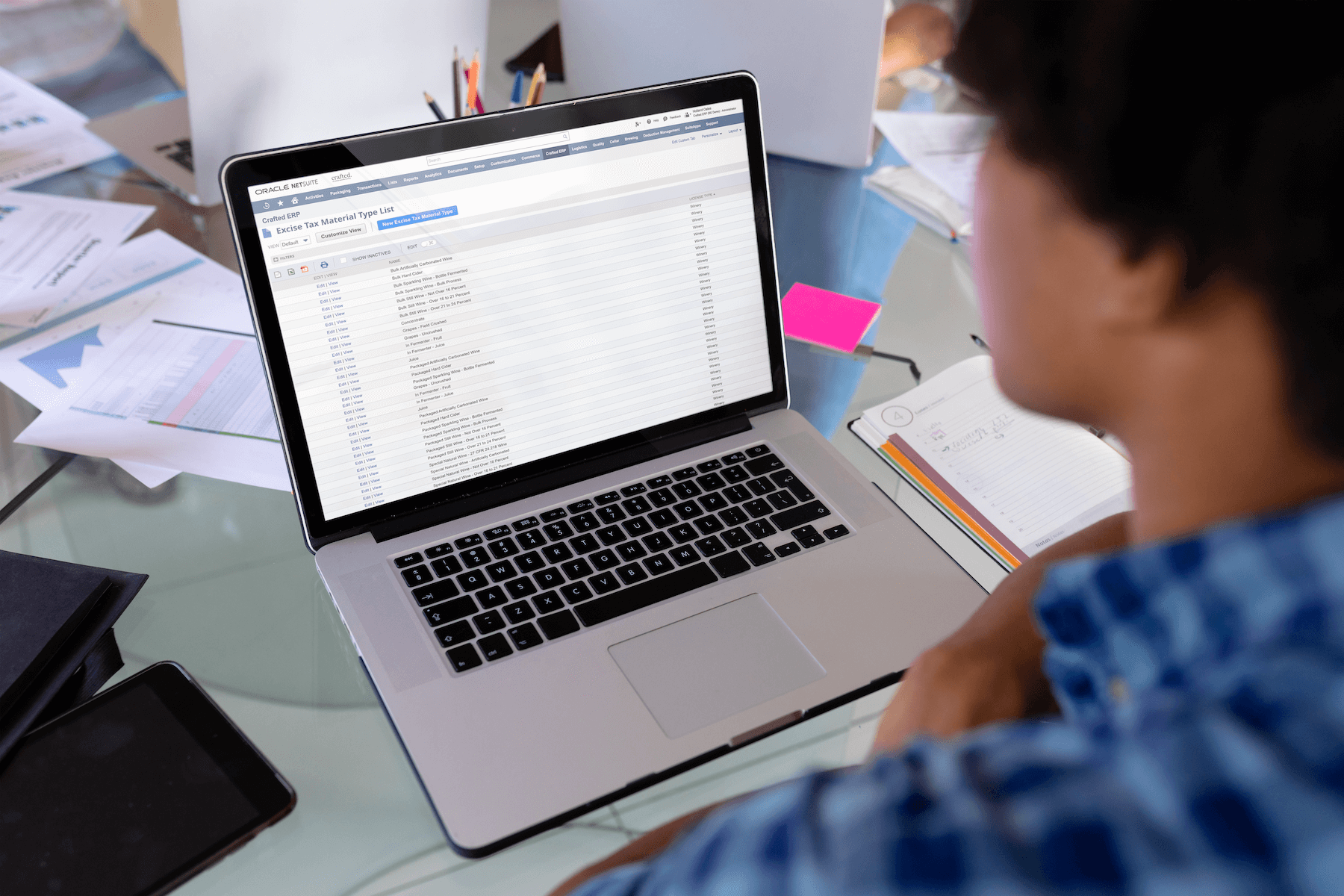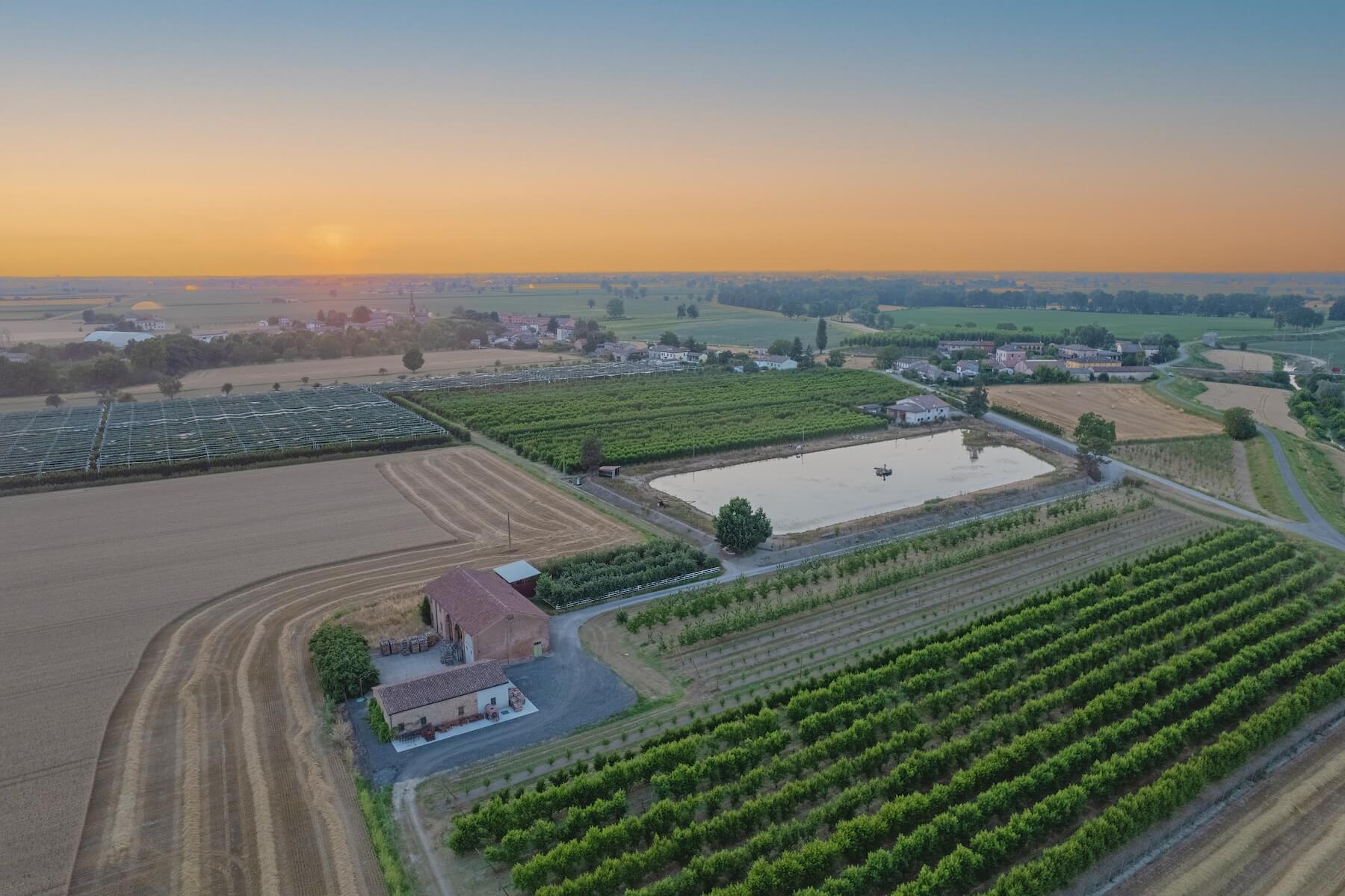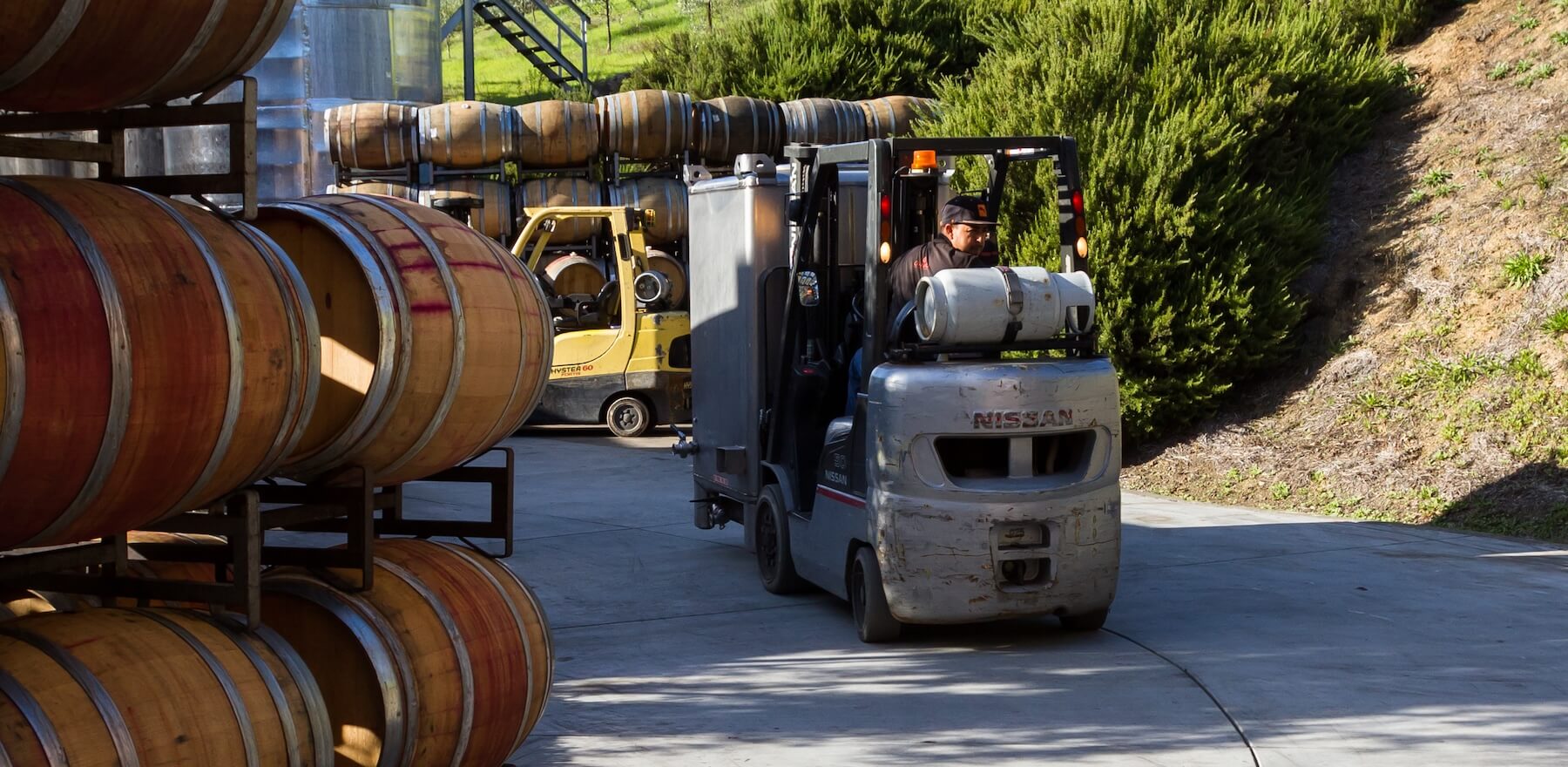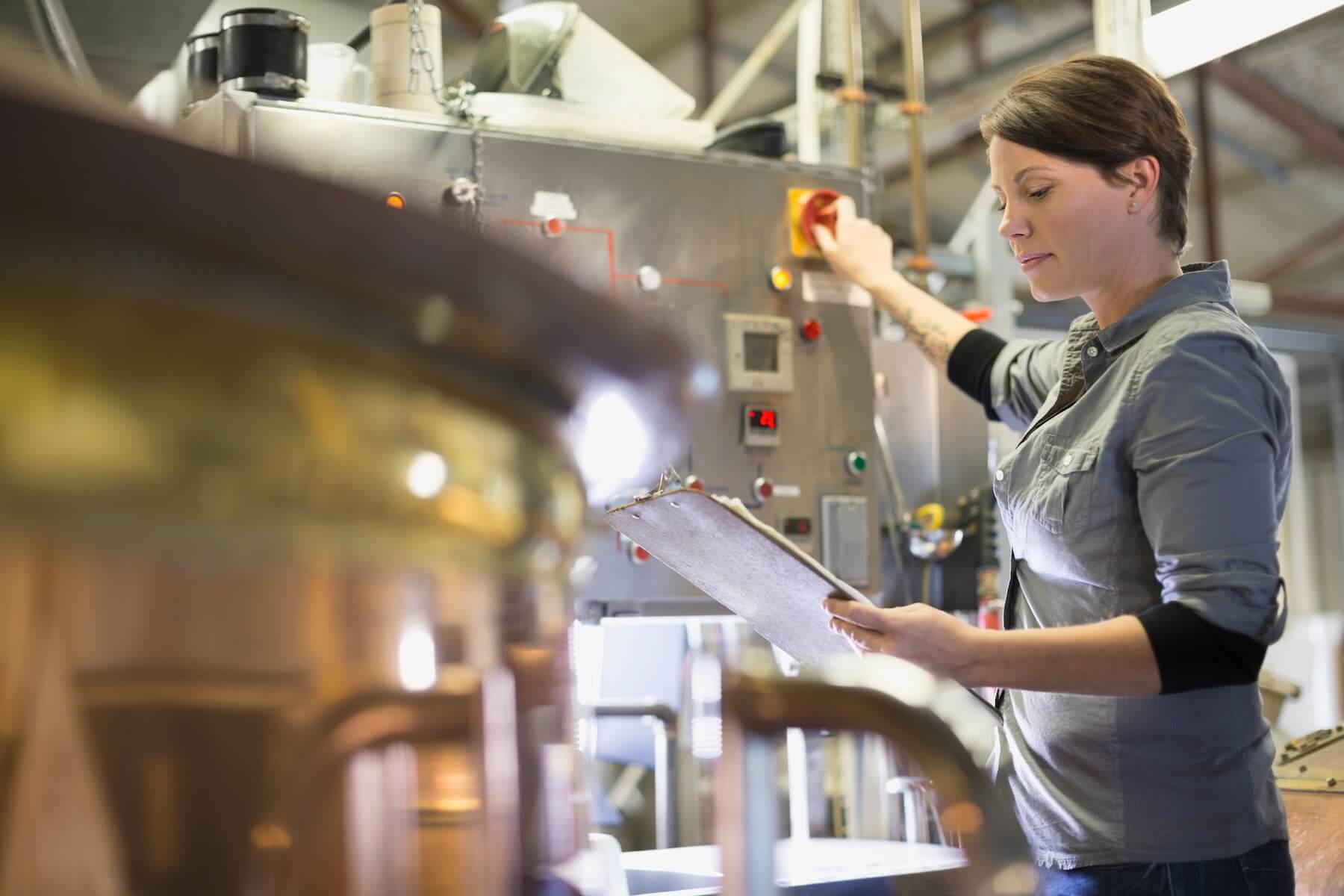According to the Green Business Bureau, a single bottle of beer can have a carbon footprint as high as 900g CO2. That is more than 14% of the average carbon footprint of a standard meal in the U.S. And having two to three beers? That ramps the percentage up to 42%.
In today’s economy, sustainability is becoming increasingly important for the beer-making industry. Consumers are more aware of the impact their purchases have on the environment, and they are looking for businesses (and products) that share their values. So how can breweries implement sustainable practices that decrease their environmental impact while attracting consumers and impacting their bottom line?
Jeremy King, co-founder and principal at Doozy Solutions, discussed the role of technology in brewery sustainability initiatives. During the Craft Beer Professionals Spring Virtual Conference, Jeremy led a webinar on how technology helps breweries transform their operations through sustainability while increasing transparency throughout the supply chain.
The presentation covers several topics, including:
- Using technology to scale sustainably
- Understanding the role that data plays in measuring sustainability throughout the supply chain and operations
- Keeping profitability at the forefront of sustainability efforts
- Connecting sustainability initiatives back to the brand and customer experience
- Using tech to achieve sustainability certifications.
Watch the Webinar on Demand Now.
Using Technology to Scale with a Lighter Footprint
One of the most significant challenges for breweries is how to scale their operations sustainably. As demand for their products grows, they need to find ways to increase production while decreasing their environmental impact. This is where technology can be a game changer. By using technology to optimize processes, breweries can reduce their carbon footprint while still meeting demand.
There are several ways technology can help reduce environmental impact. Breweries can use software to monitor their energy usage and identify areas where they can reduce consumption, and they can use sensors to track water usage to identify leaks or inefficiencies. Additionally, technology can help breweries operate more efficiently by automating certain tasks, reducing waste and improving overall productivity.
Understanding the Role of Data in Measuring Sustainability
Data plays a crucial role in measuring sustainability throughout the supply chain and operations. By collecting and analyzing data, breweries can identify areas where they can improve their environmental impact and track their progress over time. Data can also help breweries make more informed decisions about their sustainability initiatives.
Collecting sustainability data can be a complex process, but there are several tools and software programs available to help breweries streamline the process. Some software programs can automatically collect data from various sources, such as energy meters, water sensors and waste management systems. This data can then be analyzed to identify areas where the brewery can improve its sustainability efforts.
It’s also essential for breweries to balance sustainability with profitability, prioritizing initiatives that benefit the bottom line. There are many sustainable practices that can save money, such as reducing energy usage, which lowers utility bills, or reducing waste, which decreases disposal costs. Many of the sustainability efforts breweries implement will help reduce overall costs across their operation, and in turn, sustainability initiatives can have a positive impact on a brewery’s brand and customer experience.
Connecting Sustainability Initiatives to the Brand and Customer Experience
Aligning sustainability initiatives with brand values and customer expectations is crucial for breweries that want to build a loyal customer base. By communicating their sustainability efforts to customers, breweries can create a sense of shared values and build a stronger connection with their audience. This can lead to increased customer loyalty and repeat business, and it can help breweries differentiate themselves from their competitors.
IBM released a study on consumer behavior related to corporate sustainability initiatives and found that “half of consumers say they’ve paid a premium—an average of 59% more—for products branded as sustainable or socially responsible in the last 12 months.” Customers are looking for companies who want to protect the future of our planet and are even willing to spend 2 to 10% more for products that provide supply chain transparency. This is a win-win for breweries and the environment!
There are creative ways breweries can communicate their sustainability efforts through branding. We’ve seen some breweries launch marketing campaigns around their sustainability efforts, highlighting their commitment to the environment, their customers and their communities. Others have implemented sustainable practices throughout their operations and communicated these efforts to their customers through their packaging and marketing materials.
Another way is through achieving sustainability certifications. Certifications demonstrate a brewery’s commitment to sustainability and can help them attract customers who prioritize sustainability. However, achieving these certifications can be a complex process.
Fortunately, using technology to track sustainability initiatives will help breweries easily report on and meet certification requirements. Some software programs can automatically collect and analyze data required for certification, making the process more efficient and less time-consuming. Additionally, technology can help breweries identify areas where they need to improve their sustainability efforts to meet certification requirements.
Key Takeaways
Watch the full webinar on the intersection of technology, sustainability and strategy in the craft beer industry. Technology can be a powerful tool for breweries looking to scale sustainably and improve their environmental impact. By using technology to collect and analyze data, breweries can identify areas where they can improve their sustainability efforts and track progress over time. Additionally, by aligning sustainability initiatives with brand values and customer expectations, breweries can build a loyal customer base and differentiate themselves from their competitors.
Doozy Solutions, the experts behind Crafted ERP software for breweries, created the first NetSuite SuiteApp for tracking sustainability. The Sustainability Center is a customizable metrics dashboard that helps breweries track and report on sustainability measures, benchmark against industry standards and measure impact of operations to identify areas for improvement.
Reach out if you’d like to learn more about technology to track and measure sustainability efforts. We’d love to chat about our software for managing a brewery.





